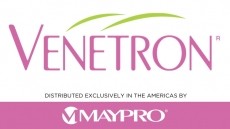Cepham initiates data-based equitable solution for women of the supply chain
“I saw that women who were doing the post-harvest processing were looking at the entire process with different eyes. And the way they were putting the personal impact, how it should be cleaned because somebody's going to use it as a food–that really affected me very deeply. And I said, ‘what if we work on this aspect where a woman's touch is needed on your food supply?’ It’s not just the touch, it's the kind of care they have and if we can use it somewhere in our supply chain. That led to other thoughts besides looking at what kind of data, but what we have seen over the years in the last 20 years in the working supply chain in Africa and India. Looking at what the gaps are and how we address these gaps using data as a science behind everything,” explained Cepham founder and president, Anand Swaroop, PhD.
“This perspective is something we profoundly lack in our supply chain – that human element, a consciousness that is so critical.”
Swaroop says Cepham’s starting point to address gender-based disparities begins with analyzing the data they’ve collected throughout the years from their supply chain for gender-based economic indicators. Additional data is being sourced by a few large-sector fertilizer companies in India to establish correlations. With this information, Cepham is developing a process to anonymize worker’s names and genders to eliminate bias in order to fairly identify the most productive workers and reward them based on accomplishments–not gender.
Once the information is in, the company hopes to use that data to identify gaps in the workforce across all levels of the supply chain, partner with suppliers that prioritize gender equality, and advocate for change, among many other goals.
Cepham plans to use all available resources to accomplish its goals including government initiatives such as access to education, vocational training, skill development programs, and increased access to credit women farmers; private sector initiatives that aim to provide better working conditions and fair wages for female workers in the agricultural industry; non-governmental organizations (NGOs) that provide support and advocacy for female farmers; and international organizations that promote gender equity through improved access to land rights and other productive resources, such as the United Nations Women’s Fund for Gender Equality (FGE).
Swaroop said giving credit to the hardworking women in the supply chain creates a company culture that motivates all employees to be more productive.
















